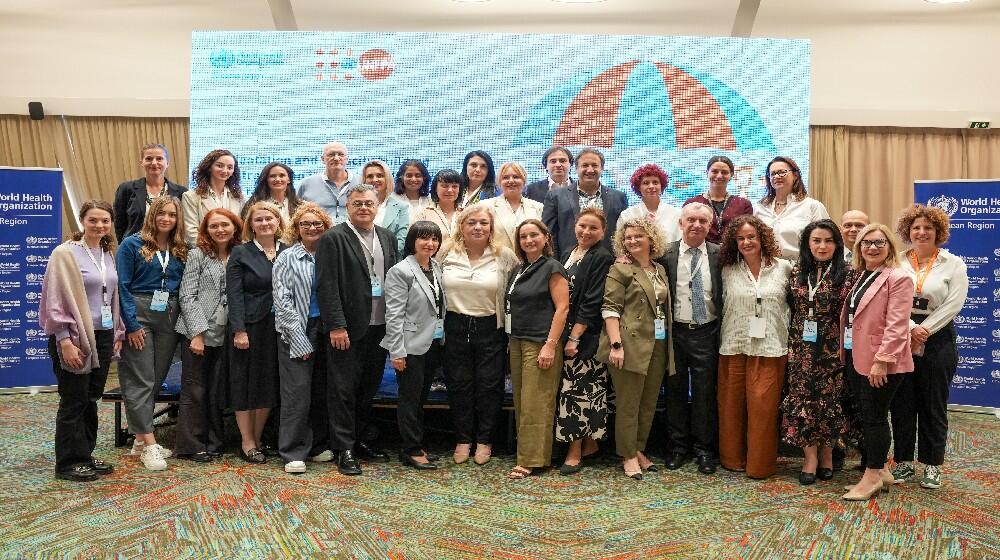SKOPJE, 24 September 2024 – Health system experts from the Western Balkans met in Skopje today to discuss ways to speed up integration of sexual and reproductive health services and rights in their universal health coverage plans, as a key strategy for ensuring that all people can access essential sexual and reproductive health services.
This will ensure that essential sexual and reproductive health services are available free of charge to those who need them, throughout their life course, including the most vulnerable populations.
Across the Western Balkans, women and girls face similar challenges - education on sexual and reproductive health for young people is limited or non-existent, information and counseling services on sexual and reproductive health and wellbeing, contraception or infertility are insufficient, while access to family planning services is not covered under the health insurance schemes.
Furthermore, there is low coverage and/or utilization of preventive services, such as Human Papillomavirus (HPV) vaccination and screening for cervical and breast cancer. Quality of care during pregnancy and childbirth can be further improved, as well as prevention and early treatment of sexually transmitted infections.
“Many people in the Western Balkans still do not have access to the sexual and reproductive health care and rights they need, due to the associated cost and out of pocket payment, some form of discrimination, or because of their inability to make their own decisions about health care and their bodies”, said Dr. Justine Coulson, UNFPA Representative for Bosnia and Herzegovina, Country Director for Republic of Albania, Republic of Serbia, Republic of North Macedonia and Director for Kosovo (UNSCR1244).
The three-day event is organized by WHO and UNFPA and brings together health system experts from Albania, Bosnia and Herzegovina, North Macedonia, Serbia, as well as Kosovo (UNSCR 1244).
Sexual and reproductive health services and rights, including maternal health, family planning, adolescent health, and disease prevention, are essential to promoting equitable healthcare. By integrating these services into universal health coverage, countries can ensure that no one is left behind, with particular emphasis on improving access for marginalized groups. Furthermore, by providing universal access to these health services for all, deaths and conditions caused by factors associated with reproductive health can be prevented.
“At the core of WHO’s work on sexual and reproductive health and rights is our dedication to generating evidence and research on innovative technologies and approaches, issuing global guidelines and normative standards, and supporting countries in implementing these guidelines to strengthen health systems. This workshop is a reflection of that commitment”, said Dr. Akeem Ali, WHO Representative and Head of the Country Office in North Macedonia.
Participants at the event will gain insights into successful strategies for embedding services like maternal and adolescent health and family planning into national health systems. Additionally, the workshop will enhance the capacity of decision-makers, program managers, and civil society to prioritize and advocate for sexual and reproductive health in the national plans, with an emphasis on a primary healthcare approach.
The event marks a significant milestone in aligning national health agendas with global priorities, ensuring sexual and reproductive health is a core element of each country’s journey toward universal health coverage.


